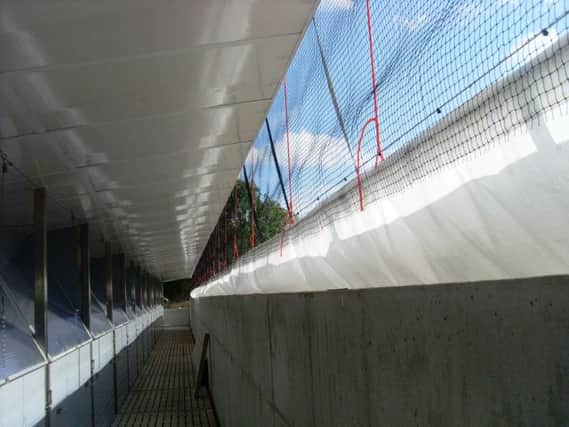DAERA Management Notes: Pigs


For pig producers these include veterinary visits, cross compliance checks, Nitrates Action Programme inspections and both Red Tractor and Integra quality assurance audits. Integra carry out independent audits on behalf of Tesco and regularly inspect pig units to ensure they meet Tesco standards.
Each year Integra produce a list of the top ten non-conformances and year on year the standard that requires bore hole water to be tested is included in the list. The Tesco standard states ‘Bore hole water must be potable and tested every 12 months’. In other words, water from a bore hole must be safe to drink and a sample sent to a lab for bacterial analysis each year.
Advertisement
Hide AdAdvertisement
Hide AdIf your pigs are drinking water from a bore hole and you have not had a sample tested it is important to do this as soon as possible. If you have already had a sample tested check the date on the report; a year passes very quickly!
Other non-conformances in the top ten list relate to the following standards:
l Tail docking or teeth clipping/grinding – this can only be carried out ‘where the veterinary surgeon has confirmed in writing that the practices are necessary and acceptable. Veterinary approved tail docking and tooth clipping must only be carried out on piglets under 72 hours old. The necessity of these practices must be regularly reviewed and reported on in the quarterly veterinary visit report’.
l Environmental enrichment – ‘all pigs must have permanent access to a sufficient quantity of material such as straw, hay, wood, sawdust, mushroom compost. Objects such as footballs and deformable-plastic pipe can satisfy some of the pigs’ behavioural needs. Any object must be malleable/destructible’.
Advertisement
Hide AdAdvertisement
Hide Adl ‘If fish or fishmeal are included as part of the diet these must be as far as possible from a sustainable source’.
PiGIS texts
On average each week 120 PiGIS texts are sent out to pig producers in Northern Ireland. The text tells you the number of pigs, average weight and probe and number of overweight pigs sent for slaughter. I know you get this information from the factory for every load of pigs sent but you may have to wait up to ten days for this information, whereas you will receive the text at 5.00pm the day after the pigs are slaughtered.
If you are missing out on getting a text you can set PiGIS up to send a text by accessing PIGPAC on the Government Gateway. Select the ’Auto reporting’ option in PiGIS and then enter your mobile telephone number.
Something of interest!
In Northern Ireland ‘Solari’ type finishing houses are quite common. The main advantage of this type of housing is that every pen of pigs is separate from the next by a wall to the roof. This type of house is naturally ventilated with the air entering and leaving via a large flap which is manually or automatically adjusted. Depending on the site and location of the house in relation to the prevailing wind draughts, particularly in some pens, can be a problem. To reduce the risk of draughts a County Armagh producer installed a nylon curtain along the access passage which runs the length of the pens (see photo). A probe is located in the main access passage and as the temperature increases the curtain opens and as it drops the curtain closes. An additional advantage is that during wet weather the producer can check and work with the pigs without getting wet as the curtain keeps out the rain.
Advertisement
Hide AdAdvertisement
Hide AdPlastic mesh is also fitted along the length of the house preventing birds getting into the pens. This is important from a biosecurity point of view as birds, as well as creating a mess, can spread diseases such as Salmonella.
The curtain is a cost effective way of reducing the risk of draughts on the pigs and at the same time makes the environment fresher and more comfortable for both pigs and those working with them.